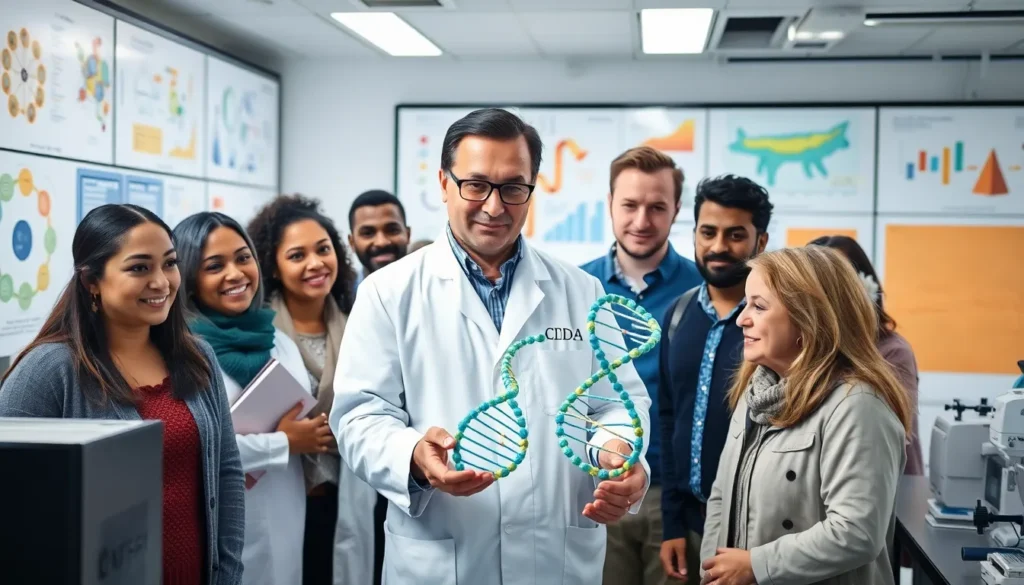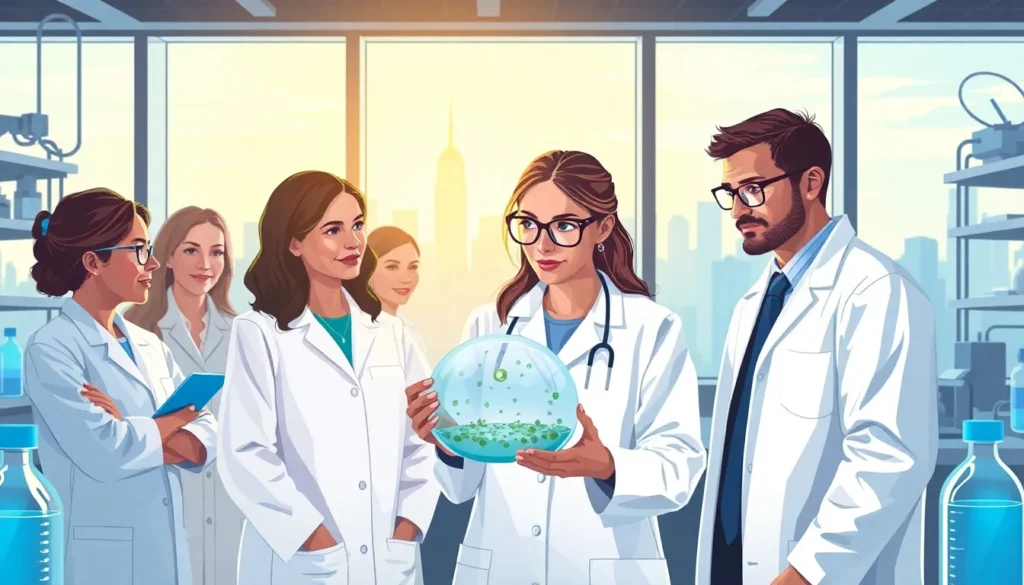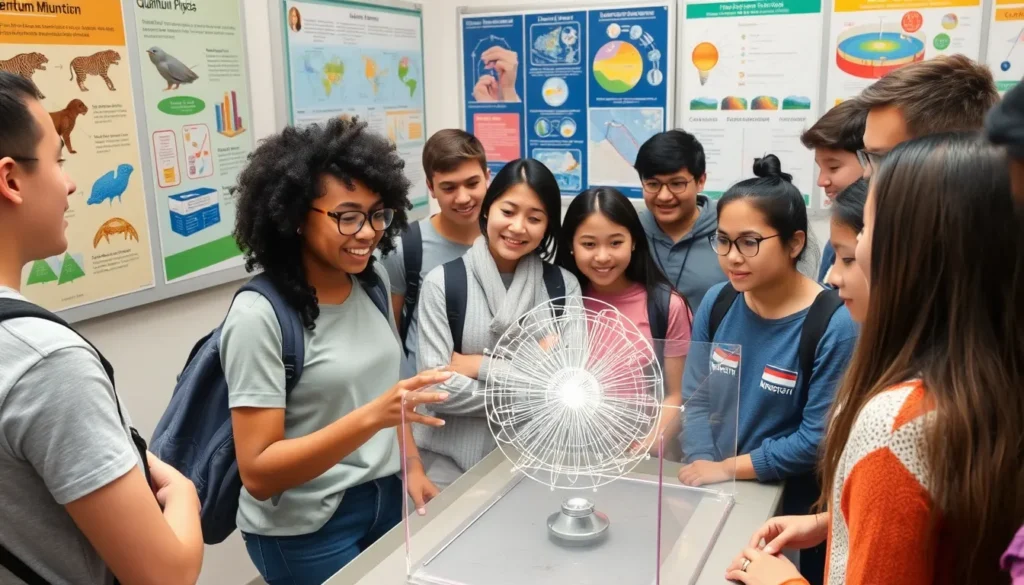Throughout history, humanity’s curiosity has sparked some of the most incredible discoveries that changed the world. From the wheel to the internet, these breakthroughs not only shaped our daily lives but also pushed the boundaries of what’s possible. Imagine a time when the thought of flying was as far-fetched as trying to teach a cat to fetch!
Famous Discoveries
World history is marked by numerous discoveries that reshaped the understanding of science, culture, and technology. The invention of the wheel around 3500 BC revolutionized transportation and trade. In 1796, Edward Jenner’s development of the smallpox vaccine marked a significant advance in medical science, laying the groundwork for immunology.
The discovery of electricity in the late 19th century by figures such as Thomas Edison and Nikola Tesla spurred countless innovations. This era introduced electric lighting and revolutionized communication with the telegraph and telephone.
In the realm of medicine, the discovery of penicillin by Alexander Fleming in 1928 transformed antibiotic treatment and saved millions of lives. This antibiotic paved the way for modern pharmacology, demonstrating the importance of chance in scientific breakthroughs.
The theory of evolution by Charles Darwin in 1859 altered perceptions of biological development, igniting a profound debate about the origins of life. Significant acceptance of this theory altered biological sciences and education worldwide.
In technology, the development of the internet in the late 20th century fundamentally changed how people communicate and access information. With over 4.8 billion users in 2021, the internet represents a monumental shift in global connectivity.
Each of these discoveries reflects humanity’s relentless pursuit of knowledge, showcasing how innovation continues to shape everyday life. These pivotal moments in history highlight the critical connection between curiosity and technological progress.
Medical Discoveries

Medical discoveries have significantly transformed health care and treatments, saving countless lives. Two notable advancements include the discovery of penicillin and the development of vaccines.
Discovery of Penicillin
In 1928, Alexander Fleming made a groundbreaking discovery when he identified penicillin. This antibiotic’s ability to kill bacteria revolutionized medical treatments for infections. Prior to this, common illnesses often led to severe complications or even death. Penicillin paved the way for subsequent antibiotics, drastically reducing mortality rates during and after World War II. Hospitals began to rely on this medication, reshaping approaches to infection control. As more antibiotics emerged, they expanded treatment options for bacterial infections, underscoring the significance of Fleming’s initial discovery.
Advancements in Vaccination
Vaccination has altered the landscape of public health since Edward Jenner’s smallpox vaccine introduction in 1796. This approach led to a dramatic decline in smallpox cases. Widespread vaccination programs became crucial in combating diseases like polio, measles, and influenza. The successful eradication of smallpox in 1980 exemplifies the effectiveness of vaccination efforts. Innovations in vaccine technology, including mRNA vaccines, have enhanced disease prevention strategies. These advancements empower health care professionals to address emerging infectious diseases, reinforcing the importance of vaccinations in maintaining global health.
Scientific Discoveries
Scientific discoveries have reshaped human understanding and advanced various fields.
Theory of Relativity
Albert Einstein introduced the Theory of Relativity in 1905, fundamentally altering physics. This theory consists of two parts: special relativity and general relativity. Special relativity focuses on the constancy of the speed of light in a vacuum and its implications for time and space. General relativity further explores how gravity influences the fabric of space-time. These concepts revolutionized the understanding of time, light, and gravity. Einstein’s work has had lasting effects on areas such as astrophysics and cosmology. It plays a key role in GPS technology as well, which relies on relativistic corrections to provide accurate positioning.
Discovery of DNA Structure
The discovery of DNA’s double helix structure took place in 1953 by James Watson and Francis Crick, alongside Rosalind Franklin’s crucial X-ray diffraction data. This landmark finding revealed how genetic information is stored and replicated. Identifying the helical structure paved the way for modern genetics and biotechnology. Understanding DNA has facilitated advancements in fields like medicine, forensics, and evolutionary biology. Researchers now can manipulate genetic material, leading to innovations such as gene therapy and CRISPR technology. The implications of this discovery continue to impact scientific inquiry and ethical discussions in society.
Technological Discoveries
Technological discoveries have played a crucial role in shaping modern society. These innovations establish new ways to communicate, access information, and improve daily life.
Invention of the Telephone
The telephone, invented by Alexander Graham Bell in 1876, revolutionized communication. Connecting people across distances became possible, which significantly impacted social interactions and business operations. Bell’s initial prototype allowed voice transmission over wires, simplifying long-distance conversations. Soon after, telephone networks spread globally, enhancing connectivity in personal and professional realms. By the late 19th century, millions of telephones emerged, changing how society interacted. Communication became faster, leading to a more interconnected world, fostering business growth and social development. The telephone set the stage for future advancements, such as mobile communication and internet telephony.
Development of the Internet
The internet, developed in the late 20th century, fundamentally transformed global communication. Initially conceived as a military project, it evolved into a robust network connecting millions worldwide. Tim Berners-Lee’s creation of the World Wide Web in 1989 facilitated easy access to information and online services. With rapid advancements in technology, internet users soared from billions to nearly five billion by 2020, reshaping how individuals communicate, learn, and conduct business. The internet enabled the rise of social media, e-commerce, and remote work, transforming daily life and sparking innovations in numerous fields. Its pervasive influence redefined boundaries, making information accessible at one’s fingertips.
Cultural Discoveries
Cultural discoveries significantly shaped human society and identity. Understanding ancient civilizations offers insights into the origins of social structures, governance, and cultural practices.
Discovery of Ancient Civilizations
Explorations of ancient civilizations reveal historical societies like the Sumerians, Egyptians, and Mayans. Archaeological findings at sites such as Mesopotamia, the Pyramids of Giza, and Tikal have uncovered remarkable artifacts. These artifacts, including cuneiform tablets and intricate pottery, provide a glimpse into daily life, religious beliefs, and political systems. Discoveries like the Rosetta Stone in 1799 enabled scholars to decode Egyptian hieroglyphs, unlocking previously unreadable texts. These breakthroughs enhance the understanding of how early societies functioned and contributed to modern governance and culture. Each new finding continues to reshape the narrative of human history, highlighting the significance of cultural evolution.
Evolution of Artistic Movements
Artistic movements reflect the changing values and ideas throughout history. The Renaissance, beginning in the 14th century, marked a revival of classical learning and the emergence of masters like Leonardo da Vinci and Michelangelo. Their works, characterized by realism and human emotion, set new standards in art. Subsequently, the Impressionist movement in the late 19th century broke from tradition, emphasizing light and color through artists like Claude Monet and Edgar Degas. These innovations shifted artistic focus from realism to personal expression. Additionally, modern art movements such as Cubism and Surrealism challenged perceptions, pushing boundaries in technique and concept. Each artistic evolution contributes to the broader understanding of human creativity and cultural expression.
Conclusion
Human curiosity has always driven remarkable discoveries that shape the world. From ancient innovations to modern breakthroughs each discovery reflects a leap in understanding and capability. These milestones not only transformed everyday life but also expanded the horizons of science and culture.
The impact of these discoveries is profound. They’ve enhanced communication improved health care and redefined our understanding of the universe. As society continues to evolve the quest for knowledge remains essential. Each new discovery builds upon the last paving the way for future advancements and inspiring generations to explore the unknown.



